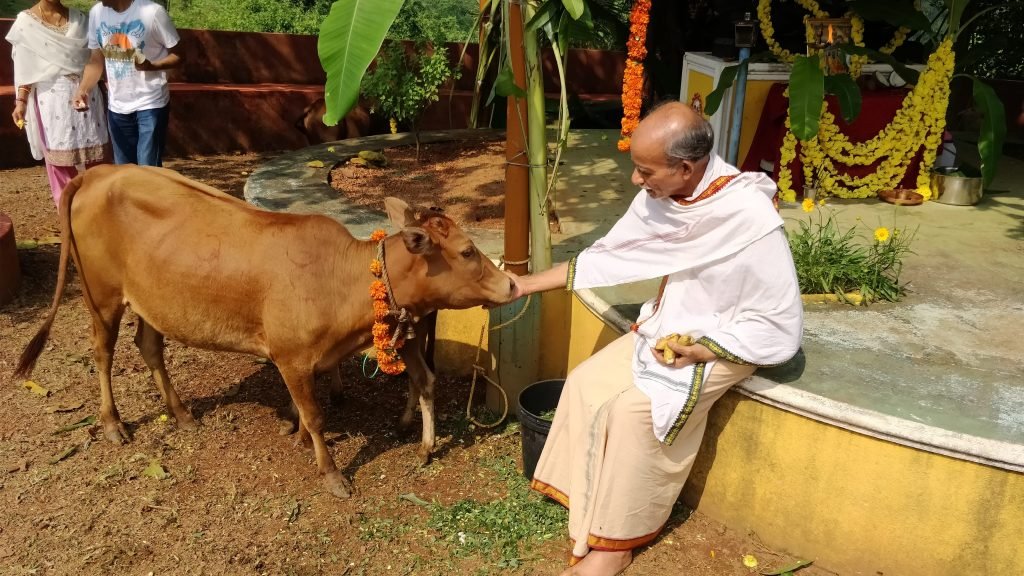Ways To Self-Realization

What are the Ways to Self-Realization?
Self-realization is the concept of understanding the soul or Athma and interacting with the universe through the Athma and finding salvage. This has been defined and illustrated in several Hindu religious literatures as “Athma Sakshatkara”. This is considered as one of the routes of salvation or “Moksha” according to the Hindu philosophy. Hinduism offers alternate ways to self-realization. Jnana Yoga, Bhakti Yoga and Karma Yoga are the three different paths described for attaining self-realization in the Hindu spiritual literature and narrated well in the Bhagavadgita.
Jnana Yoga
The concept of Jnana yoga prescribes the use of one’s intellect for gaining the knowledge of truth through the progressive study of the scriptures, training by a Guru and meditation. This way to self-realization is considered as the most challenging path, as it demands teaching of Vedantic philosophy by a guru, learning the subtleties of the teachings by the disciple and meditation on Brahman strictly following the guidelines of the Vedantic texts. This way to self-realization demands strict discipline of the mind, lifestyle and Rigorous Meditation or Dhyana. The principles of Jnana yoga are not practical in the real world and hence difficult to follow by common people.
Bhakti Yoga
The concept of Bhakti yoga is illustrated in the Hindu spiritual texts like the Bhagavad Gita and the Upanishads. Bhakti yoga involves surrendering oneself to the Paramathma or the universal consciousness. This is the most popular and the one which can be integrated within the daily life of a normal human being, be it a king or a beggar, a male or a female, and can be practised anywhere and anytime. The Bhagavadgita recommends this as the most practical and comfortable path towards self-realization. According to the Bhagavadgita, even animals can follow this path and elevate their “Athma” through this way to self-realization. The Bhakti yoga is a passionate practice and close to the heart. This recommends chanting of Mantras, performing Pooja, prayer, kirtan and other religious rituals for understanding and realizing the Athma and Paramathma or the soul and the Universal Consciousness. The Hinduism is highly flexible and dynamic with reference to the Bhakti Yoga path of self-realization. Bhakti yoga is open to all living beings, the choice of deity is also left with the practitioner or even worshipping more than one or every deity is also allowed in this concept. The ways of performing rituals and types and modes of offerings also left to the individual. Three major deities are worshipped by the Bhakti Yogis. Lord Shiva and his family are worshipped by the Shivites, Lord Vishnu and his avatars are worshipped by the Vaishnavites and Smarthas worship Maa Durga, Lord Shiva and Lord Vishnu. Each cult respects the other and all maintain harmony across each other. Hinduism believes that determination, devotion, patience and perseverance to the core are absolute essentials for achieving success through Bhakti yoga.
Karma Yoga
This is the way to self-realization through one’s action. Karma yoga refers to the discipline of the mind, which directs the follower to perform every duty as a service to the entire world, which leads to enlightenment and self-realization. This allows the individual to be worldly, at the same time mentally detached from all the work and outcomes of the work. This state of mind has been recommended for achieving self- realization and spiritual liberation. Swami Vivekananda has interpreted Karma yoga elaborately and defined it as a system of ethics and religion prescribed for Athma Sakshatkara through unselfishness, and by good works. In simple, the karma yoga preaches the principle of “Work is Worship”. Therefore, it is not necessary to the Karma Yogi to believe or worship the God. The one who follows karma yoga does worship through his actions, and hence very moment of his/her life is a worship.
The important fact regarding the different ways to self-realization is that there is no defined demarcation among the three paths and one has the freedom of following the principles of all the three ways depending on the context of his/her lifestyle, mindset, knowledge and choice. These divisions are made in accordance with the type or the tendency that may be seen to prevail in an individual.
Shri Shaktidarshan Yogashram, is one such institution, dedicated to aiding fellow beings to grow mentally and spiritually through yogic practices such as meditation, Kriya Yoga, Atma Vidya and other allied practices. It is headed by Shri Devadas Rao, our Poojya Guruji, an established Yogacharya and Spiritual Teacher belonging to the Himalayan tradition. The ashram serves as a retreat for those who wish to seek the meaning and wisdom within. Nestled in the groves of Kinnigoli, at the Outskirts of Mangalore City, Karnataka State, India, the Shri Shaktidarshan Yogashram is situated at a distance of 8 Kms from Mulki, 365 Kms from Bangalore and 875 Kms from Mumbai with easy accessibility through rail, road and air.
Help Us Now

Donate to Surabhivana Gaushala to save and protect Indian Cow Breeds.
All donations are exempt under Section 80G of the Income Tax Act, 1961. All donation receipts shall be mailed to the address given by the donor or may be collected in person, at request.
Click the below button to donate through credit cards/debit cards or Net Banking via Razor Pay.
